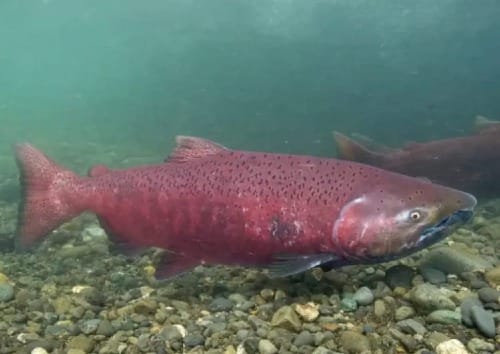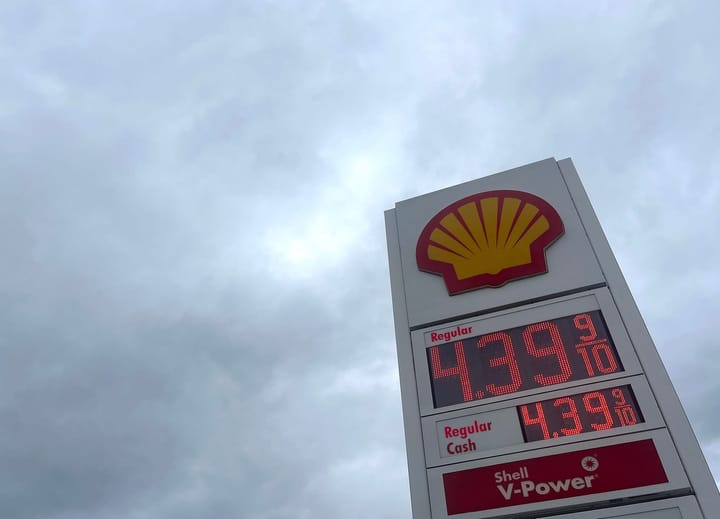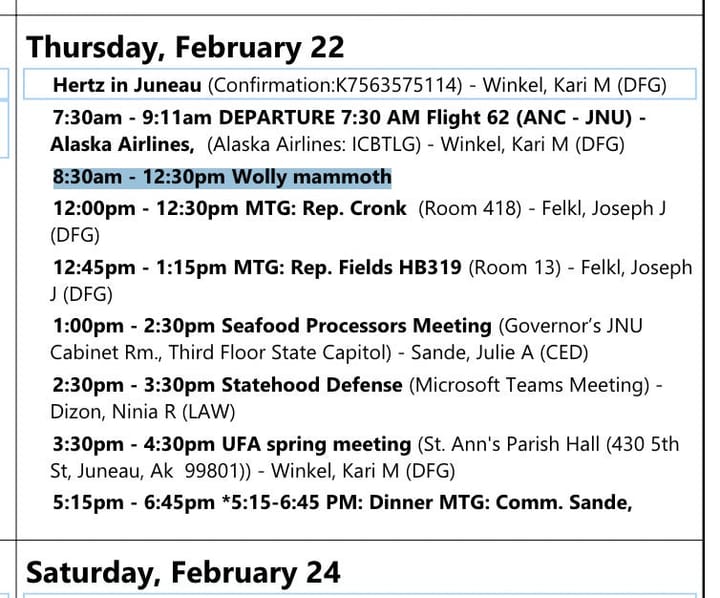Alaska odds and ends, and a quick European dispatch
Catching up on some nuggets from the state budget, news on a contentious mine and road proposal in Northwest Alaska, and links to some of my recent freelance pieces.
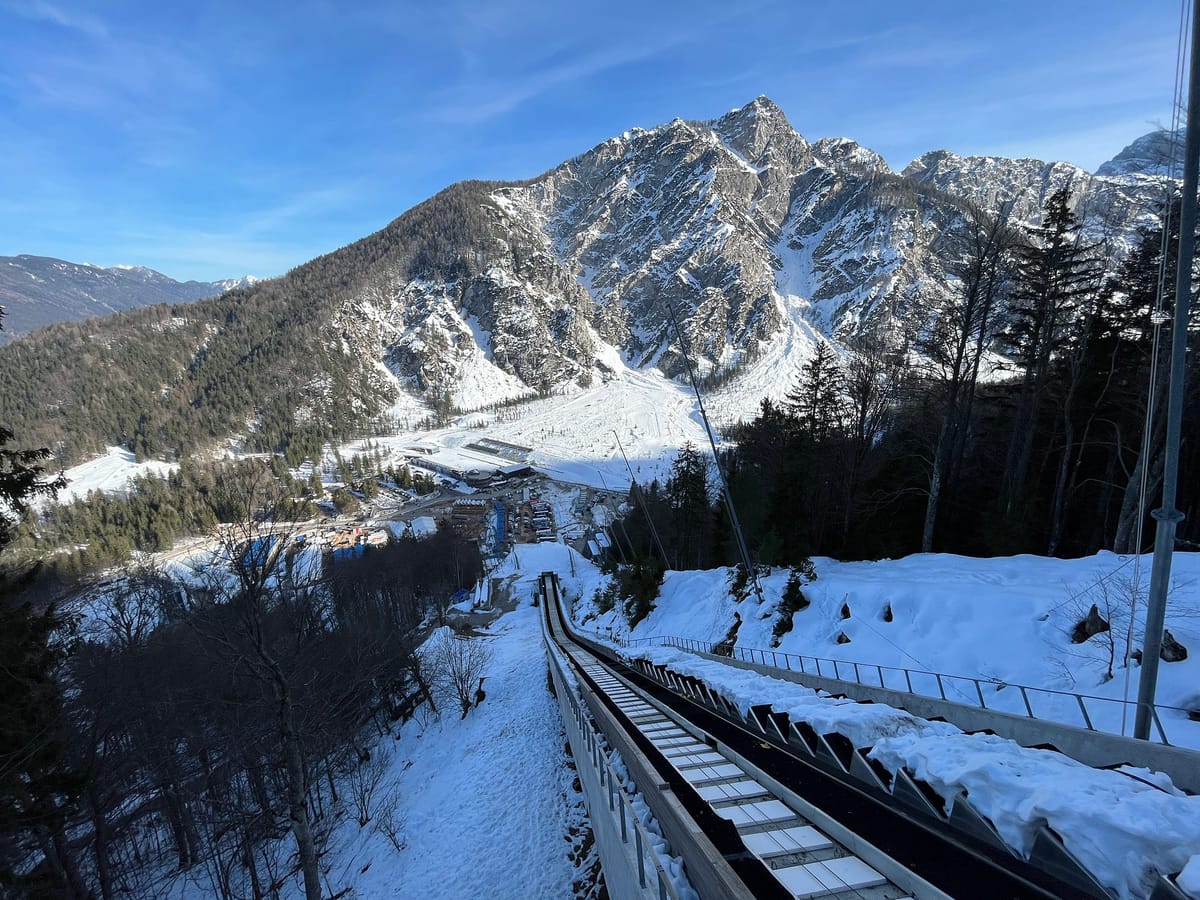
This edition of Northern Journal is sponsored by The Boardroom, a shared workspace in Anchorage. I use their array of comfy and light-filled spaces as an alternative to my home office, and I also enjoy the free kombucha and convenient access to downtown. Check out membership options here.
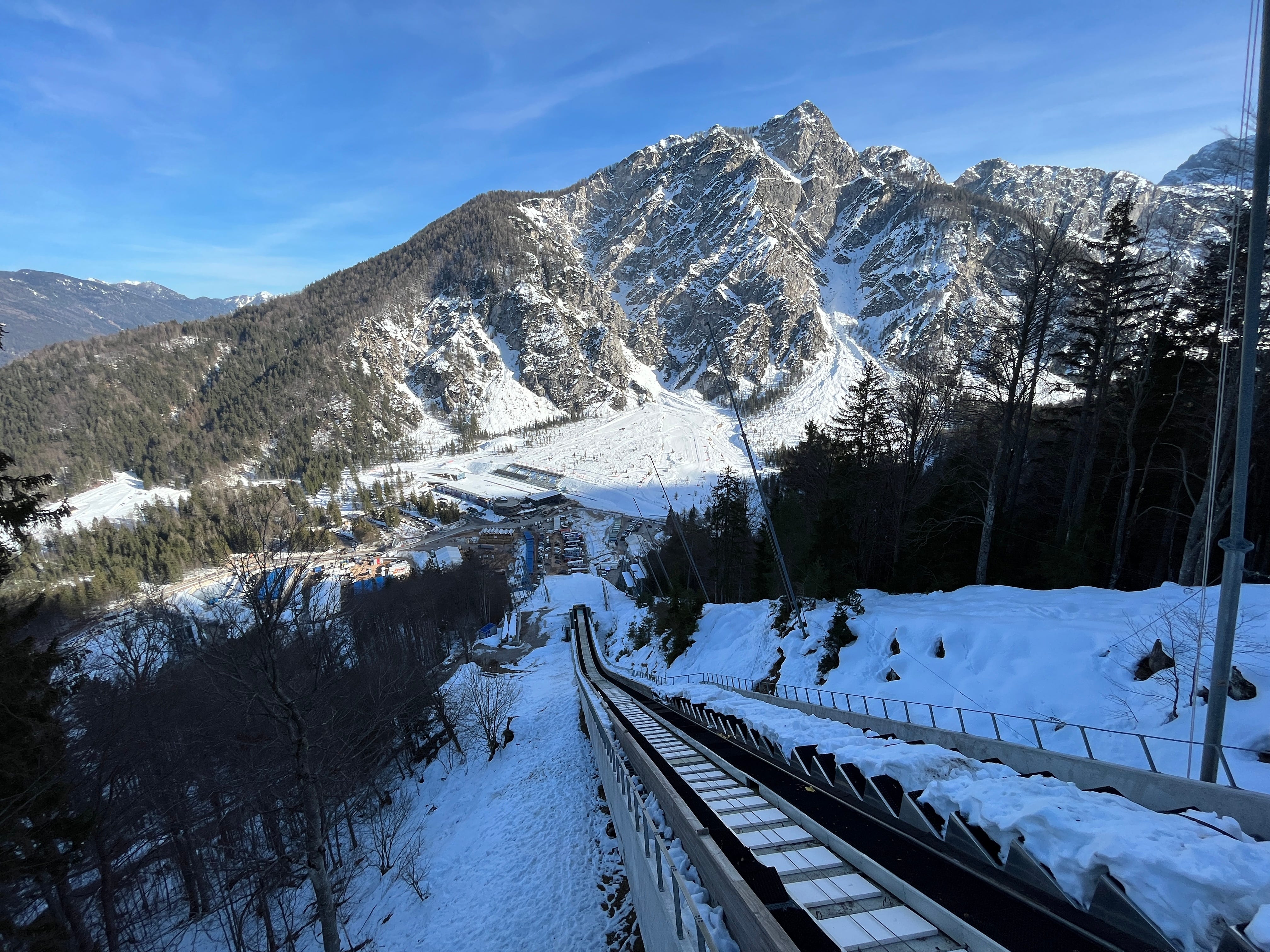
Good morning, from northwestern Slovenia.
I’m here on assignment, covering the World Nordic Ski Championships for a U.S.-based cross-country skiing website called FasterSkier.com. I’ll be in Europe for the next two-and-a-half weeks, filing features and dispatches on the results here — including those of a number of Alaska-based athletes, like Anchorage’s Rosie Brennan and Gus Schumacher, who both raced at the Olympics in China last year.
Northern Journal will still run a couple of Alaska-focused stories while I’m away, courtesy of a freelancer I’m excited to be working with — stay tuned for those, which I’m very excited about. I’ll also send another email or two with links to some of my work here, as I think there’s likely some crossover interest in cross-country skiing among Northern Journal’s Alaska-centric audience. If you feel strongly about wanting or not wanting this kind of material in your inbox, please send me an email.
In the mean time, I wanted to send out links to a couple of recent stories that have run elsewhere, and to highlight a couple of developments that haven’t gelled into standalone pieces. More soon.
—Nat
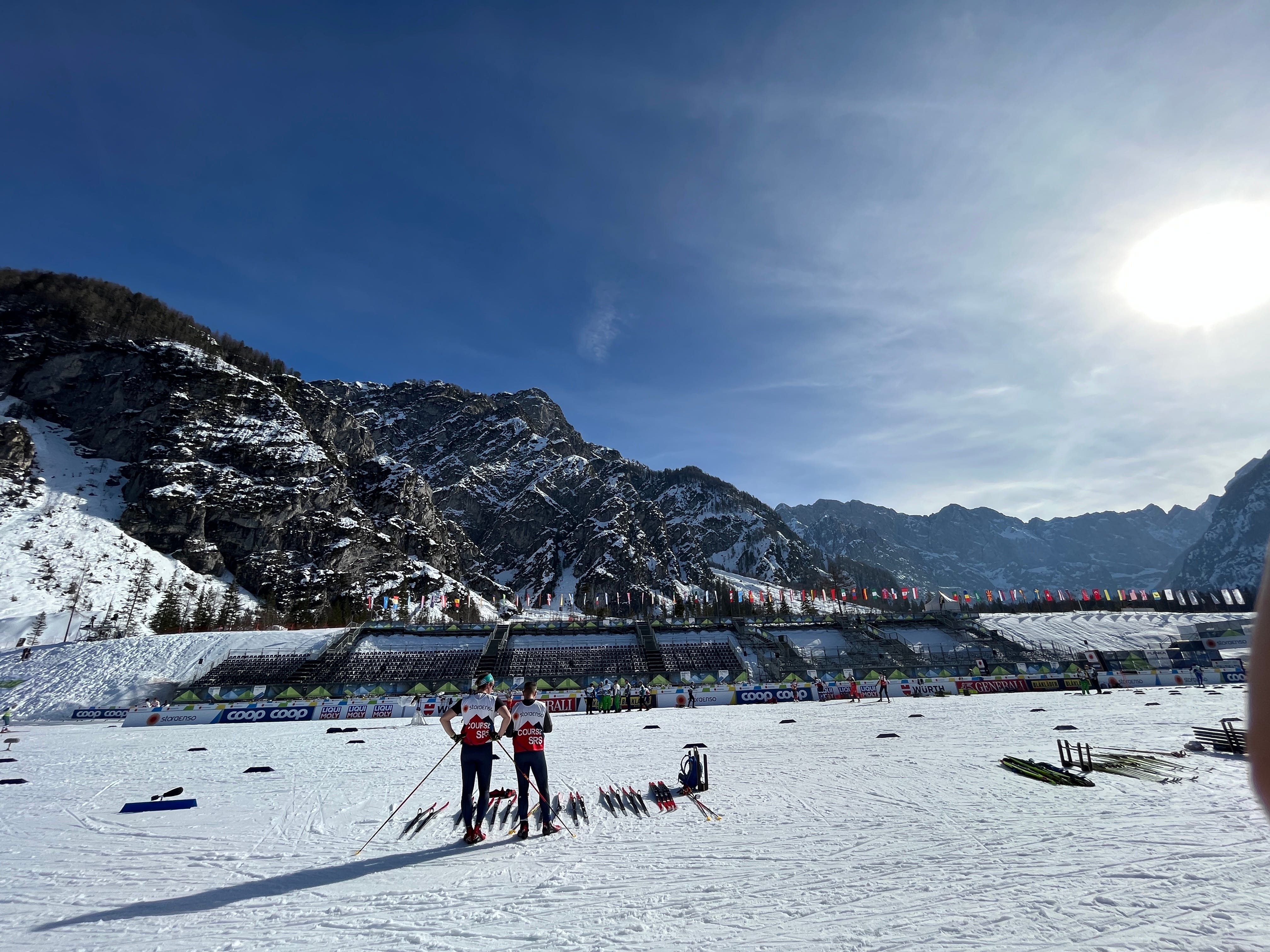
A couple of links
Earlier this week, Politico Magazine published a long feature that I reported about David Eastman, the Republican state representative from Wasilla. Eastman, who’s also in the news this week for asking about financial benefits to the state from the deaths of abused children, attended the Jan. 6 rally at the U.S. Capitol and is a lifetime member of the Oath Keepers group — some of whose members were convicted of crimes related to the Jan. 6 riot.
My story explored how activists in Alaska tried to strip Eastman of his seat using a previously obscure provision of the state Constitution that bars people from public office who aid or belong to a group that advocates the forcible overthrow of the U.S. government. Spoiler alert: That effort failed, and my story explores how not just Republicans but Democrats in the state Legislature are uninterested in using other levers to remove Eastman from office. Read the piece here.
Meanwhile, my first dispatch from Slovenia is here. I’ll be co-hosting a cross-country skiing podcast that will come out each day or two during the World Championships, as well, with the first episode released later today; you can listen to that here. If you’re generally interested in following the results from the championships, the website I’m working with, FasterSkier.com, is a good one to bookmark.
Dunleavy eyes amped-up voter fraud investigations
I wanted to highlight a couple of items in GOP Gov. Mike Dunleavy’s amended budget that interested me, but seem to have escaped much notice.
The most interesting was buried 58 pages deep into the governor’s 112-page summary of budget amendments, in the section that covers the Department of Law. In it, the administration is proposing to hire a new criminal investigator in the Office of Special Prosecutions, at a cost of $145,000 a year, to work on cases of voter fraud.
To be fair, this is a limited proposal: The position would only dedicate 25% of its time to voter fraud work, according to budget documents: the six months leading up to every once-in-two-years election. (The rest of the time would be dedicated to working other major cases handled by the special prosecutions office, including homicides, sex offenses and other violent felonies.)
But the proposal is significant because it fits in with, and caters to, widespread GOP complaints about voter fraud across the country that, generally speaking, haven’t aligned with research and reporting that shows cases of voter fraud are extremely rare — with just three cases filed since 2020, according to a November report by the Alaska Beacon.
The highest-profile national effort has come from Florida Republican Gov. Ron DeSantis, a possible 2024 presidential candidate whose new $3.5 million Office of Election Crimes and Security last year announced 20 arrests for violations of voting laws, in a state with nearly 15 million registered voters.
The Dunleavy administration, in budget documents, said that currently, reports of voter fraud are examined by a law enforcement officer who “must simultaneously handle other criminal investigations,” resulting in slower timelines.
Two other interesting items in the governor’s budget amendments for the Department of Law are a couple of new attorneys the administration is proposing to hire. One would work on “parental rights in education” in the Consumer Protection Unit, where they would “assist parents in advocating for themselves and their students with schools and school districts,” according to budget documents.
The other would lead the state’s work on tribal law issues like child welfare, education and potentially gaming, according to budget documents, and be charged with “thinking more strategically and creatively about how to effectively partner with tribes, while also asserting the state’s rights and sovereignty when needed.”
The Ambler road and mine are inching forward
There have been a few interesting developments related to the contentious plan to build a major copper mine in the Ambler district of Northwest Alaska, along with the separate, equally contentious proposal to build a 200-mile access road that the project’s owner would use to truck out valuable minerals.
I’ve written previously about the high stakes of these proposals for Northwest Alaska, where some residents see potential benefits from the jobs and road access that could come with the mine, while others fear that mishaps could harm the ample fish and wildlife populations that have long sustained Alaska Native people in the Kobuk River valley. The Biden administration is currently reexamining a Trump-era authorization for the access road project, which is being challenged in court by two separate lawsuits from tribes and conservation groups — though in significant news last week, two of the tribes participating in one of the lawsuits dropped out.
Earlier this month, Trilogy Metals, a Vancouver-based co-owner of the proposed mine, released a new feasibility study that outlines significantly higher costs for constructing the project, stemming largely from inflation and improvements aimed at minimizing environmental impacts.
The mine’s total capital cost, according to the company, rose by 40% between a 2020 feasibility study and the one released this month, with operating costs also rising 27% — though these increases would be largely, though not entirely, offset by significant price increases of the metals the mine will produce. Altogether, the new feasibility study shows the project’s rate of return dropping to 23% from 27%.
In a call with investors to release the study, Trilogy executives said they plan to file their formal application for a crucial Clean Water Act permit for the mine before the end of the year.
Separately, a subplot has been quietly playing out in federal court over efforts by the state of Alaska to continue development work on the road even as the project’s approval is in limbo during the Biden administration’s review.
Last month, the state economic development agency that’s pushing the road, the Alaska Industrial Development and Export Authority, asked the federal judge overseeing the lawsuit to allow it to move forward with drilling boreholes and other technical work on non-federal land along the road corridor. The agency was joined in its filing by the state of Alaska, the company that owns the proposed mine in the Ambler region and NANA Regional Corp., the regional Alaska Native corporation for Northwest Alaska, which has partnered with the mine’s owners on preliminary development work.
AIDEA, in correspondence with the federal government, says the work is essential as it develops road design details and tries to avoid impacts to cultural or historical resources. But it’s been unable to get permission for the work to continue from the federal Bureau of Land Management, which says AIDEA is bound to follow an agreement that it signed in 2020 giving the BLM regulatory authority over work proposed on federal and non-federal lands along the road corridor.
AIDEA’s January request has drawn meaty filings in opposition from the Biden administration and the remaining tribes opposed to the road. Doyon — the regional Alaska Native corporation for Interior Alaska, which owns roughly 10 miles along the road’s right of way — hasn’t taken a firm position on the project, but it still weighed in this month in favor of AIDEA’s request.
In a friend of the court brief, it said the pre-development work proposed by AIDEA would provide "valuable information" regardless of whether the project is built, and that the BLM's refusal to grant permission for the work "has effectively blocked Doyon from allowing AIDEA to access and conduct these activities on Doyon lands." Look for a decision on AIDEA’s request from U.S. District Court Judge Sharon Gleason later this spring.
Northern Journal is a reader-supported publication. To receive new posts and support my work, consider becoming a free or paid subscriber.

